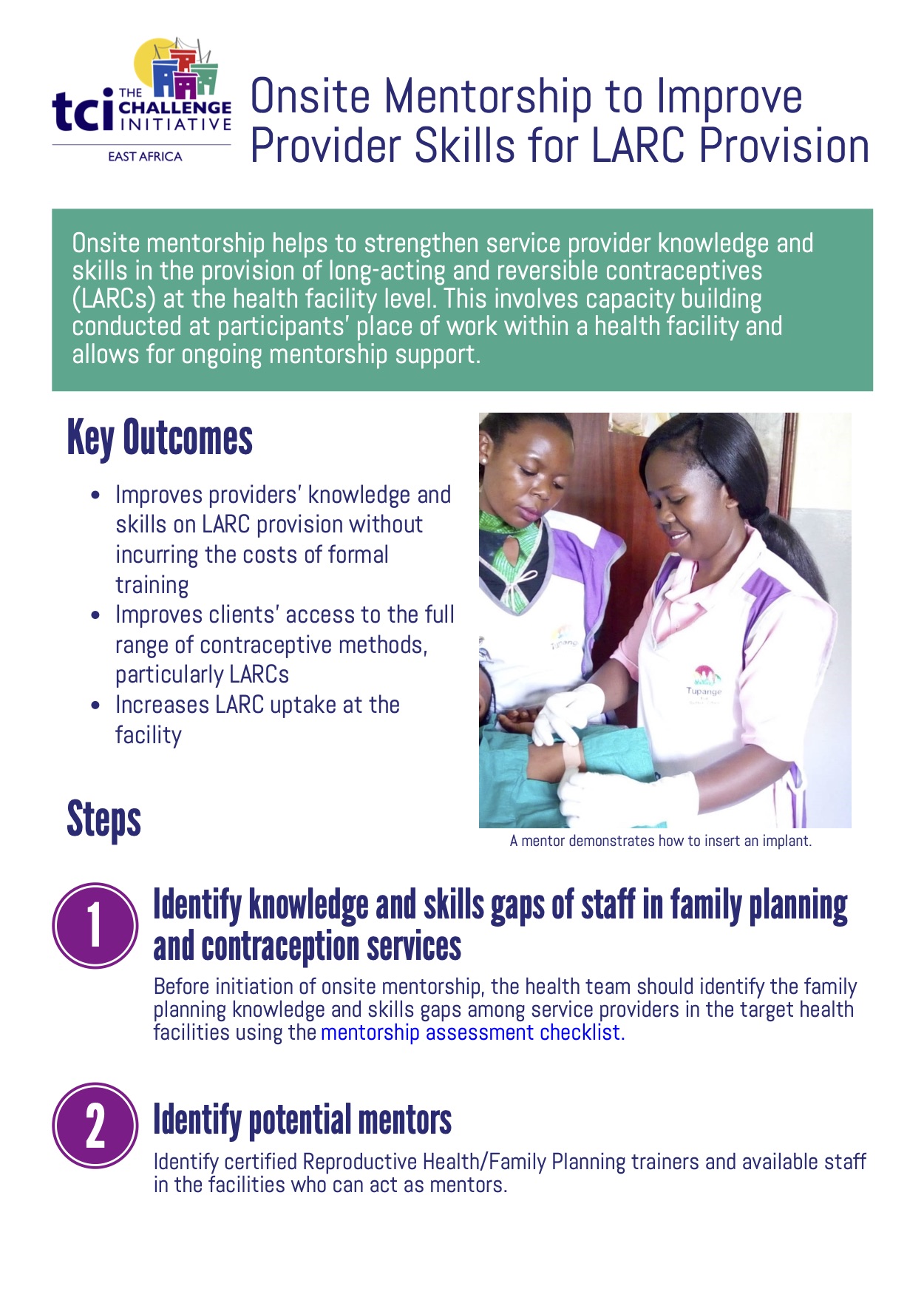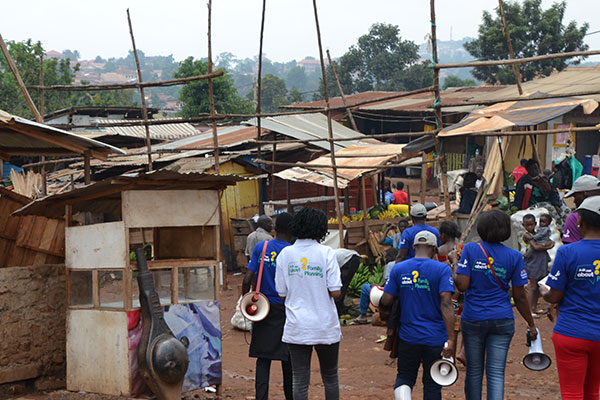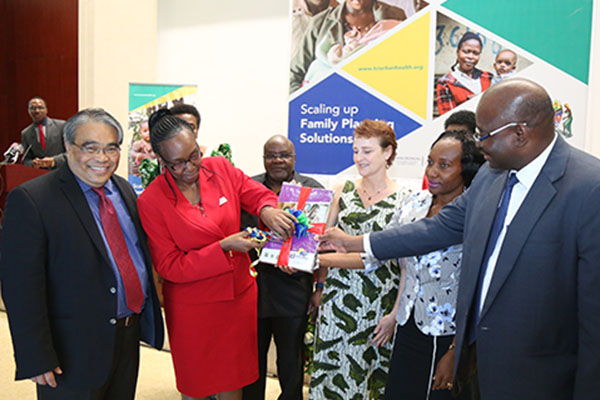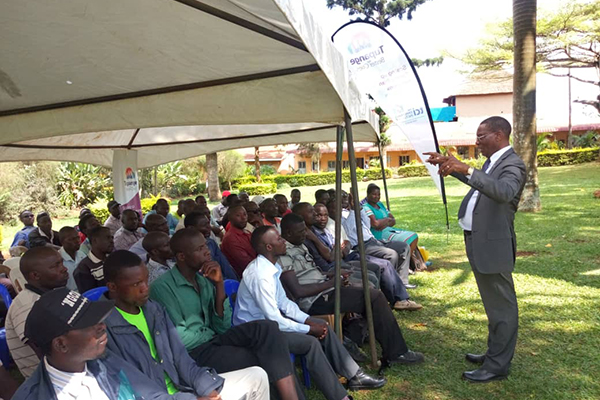East Africa Toolkit: Services & Supply
- Home
- Help and Support
- Close
- Toolkits
- Global Toolkit
- AYSRH Toolkit
- Hub Toolkits
- Core High-Impact Practices
- Gender Essentials Mini Course
- Close
- Resource Collection
- Community of Practice
- Coaching
- Log In/Register
- My Profile
- English
Onsite Mentorship to Improve Provider Skills for Long-Acting and Reversible Contraceptives (LARCs)
 This tool will provide guidance on how to strengthen service provider knowledge and skills in the provision of Long-Acting and Reversible Contraceptives (LARCs) at the health facility level. This involves training conducted at the participant’s place of work within the health facility as opposed to formal classroom training.
This tool will provide guidance on how to strengthen service provider knowledge and skills in the provision of Long-Acting and Reversible Contraceptives (LARCs) at the health facility level. This involves training conducted at the participant’s place of work within the health facility as opposed to formal classroom training.
The training methodology is based on learning by doing. Initially the mentee observes the mentor providing a method followed by supervised direct practice of learned skills by the mentee, on models and then with clients. The tool is intended to strengthen local government capacity to support mentorship in the provision of Long Acting Permanent Methods.
Why Onsite Mentorship Is Important
- Onsite mentorship is part of the Ministry of Health (MoH) policy of moving away from centralized classroom-based training for in-service health workers to onsite training during service provision. This approach does not disrupt routine health service delivery in the facilities
- Learning at the service providers’ workplace provides a conducive environment tailored to the needs of the particular facility
- Classroom-based training of service providers often shows no substantial impact on LARC provision because there is no focus on clinical skills. However, onsite mentorship enables the learner to practice their clinical skills and become more competent
- Tupange experiences with onsite mentorship shows that it substantially reduces the costs of training compared to formal classroom-based training
Evidence
- In Tupange project sites, a wide range of family planning services, including long term methods, are now being offered in the high-volume facilities as a result of mentorship activities
- Proportion of new to LAPMs acceptors
Guidance: How to Implement Onsite Mentorship
- Before initiation of onsite mentorship, the health team should identify the family planning knowledge and skill gaps among service providers in the target health facilities
- Identification and availability of staff in facilities capable of serving as mentors
- Identify Reproductive Health/Family Planning trainers who can act as mentors
- It is important to standardize the knowledge and skills of selected mentors to ensure that they communicate the most recent updates and policies. A training schedule that can be used to standardize family planning Clinical Skills
- Mentors and mentees will conduct practical training sessions using models and graduate to offering services to clients
- Local government teams need to support mentees with all LARC training materials, models (Madam Zoe, Implant Arm Model and IUCD handheld model), commodities (IUCDs, implants), stationery and consumables to facilitate training and, where necessary, provide transport
- Mentors are expected to schedule in-reaches for mentorship sessions in consultation with mentees and health facility in-charges. Use in-reaches to ensure maximum client flow at a time conducive for service provider
- As per the MoH guidelines, mentees are required to undergo a minimum number of contacts with clients as indicated in the Mentee log book
- Mentorship can be done within scheduled in-reaches through technical assistance by the external or facility-based mentors
- The mentorship process needs to be finalized within a period of 3 months; however, this may be subject to availability of the mentors, workload at the facility, availability of the mentee and the client flow
- Upon completion of stipulated minimum requirements as per the Mentee log book, assessment and certification of mentees can be done
- It is recommended that the geography health teams, in consultation with the Division of Reproductive Health, undertake the assessment and certification of eligible mentees
Monitoring Processes
- Maintain list of Reproductive Health/Family Planning trainers who can be used as mentors
- List of mentee and mentors are maintained to facilitate tracking progress
- Provide mentees with mentee log books to document progress
- The mentor and the facility in-charge review and sign the mentee log book
- Maintain a register of mentees who are in mentorship; who have completed mentorship and those who are certified
Success Indicators
- Facility LARC uptake and method mix
- Number of service providers who have completed family planning mentorship
- Proportion of family planning facilities providing LARC
Cost
- Training models and supplies
- Printing of learning guides, assessment checklists, family planning job aids, mentee log books and LARC Learning Resource package
- Facilitation costs for mentors and mentee
Sustainability
- Utilization of facility-based mentors who have attained competency level on an ongoing basis, as opposed to external/visiting mentors
- Incorporate onsite mentorship in the government family planning or reproductive health capacity-building plans
TCI APP USERS PLEASE NOTE
You will only receive CERTIFICATES by email – when earning a score above 80% – and will not be able to view or print a certificate PDF from the TCI app.
Test Your Knowledge
Earn a Certificate
Quiz Summary
0 of 5 Questions completed
Questions:
Information
You have already completed the quiz before. Hence you can not start it again.
Quiz is loading…
You must sign in or sign up to start the quiz.
You must first complete the following:
Results
Results
0 of 5 Questions answered correctly
Your time:
Time has elapsed
You have reached 0 of 0 point(s), (0)
Earned Point(s): 0 of 0, (0)
0 Essay(s) Pending (Possible Point(s): 0)
Categories
- Not categorized 0%
- 1
- 2
- 3
- 4
- 5
- Current
- Review
- Answered
- Correct
- Incorrect
-
Question 1 of 5
1. Question
This training methodology is different than formal classroom training because it involves observing a mentor first then practice on models then clients with supervision.
CorrectIncorrect -
Question 2 of 5
2. Question
Benefits of Onsite Mentorship include:
CorrectIncorrect -
Question 3 of 5
3. Question
Onsite Mentorship can be monitored through:
CorrectIncorrect -
Question 4 of 5
4. Question
How useful did you find the information and/or tools presented on this page? Please write your response in the box below using one of the following phrases: Very useful, Useful, Somewhat useful, Not useful.
Feel free to comment on why you made that choice.
-
This response will be awarded full points automatically, but it can be reviewed and adjusted after submission.
Grading can be reviewed and adjusted.Grading can be reviewed and adjusted. -
-
Question 5 of 5
5. Question
How do you intend to use the information reviewed and/or tools that you accessed?
-
This response will be awarded full points automatically, but it can be reviewed and adjusted after submission.
Grading can be reviewed and adjusted.Grading can be reviewed and adjusted. -







